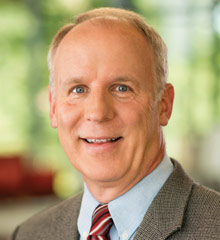Contemporary religious life in the United States is a huge, complex, and often time contradictory thing, and it is very difficult to make generalizations about it.
The sheer multitude of different religious groups, the variations on religiosity by class and geography, and the bewildering diversity even within religious groups makes one hesitant to say anything at all, for fear of contradiction. The United States is a religious enigma in the modern world; though economically we are a part of the industrialized First World, our religious attitudes and intensity are closer to that of the developing Third World nations. Those who have suggested that the United States is simply lagging behind in our eventual move toward secularization and irreligiosity have so far been proven wrong; religion is still deeply important to the vast majority of American citizens. But how to understand this attachment, and what it means?
To make sense of all of this, and to see the proverbial religious “forest” in the midst of all the trees, scholars of American religious life take polls. They have been polling Americans now for over seventy years, and even granted the limitations of polling data, these surveys of American life have given us a reasonable picture of American religious life, in all its complexity and contradiction. Sometimes the data seems contrary to our view of the subject. The Gallup poll, for example, has shown that rates of religious identity, adherence, and practice, have remained relatively steady over the past sixty years. A recent poll of new American immigrants has shown that two-thirds of all new immigrants to the United States are Christians, and less than 15% are Muslims, Hindus, or Buddhists. And long-term data has shown that formal religion is much stronger now than it ever was back in the “good old days” of colonial America. Often the data about American religion runs counter to what we expect it to be, so even if we are (rightly) skeptical about all the conclusions, we need to take this data seriously.
The Pew Forum on Religion and Public Life has just issued the results of a large survey of American religious life, in which 35,000 Americans were polled about their religious attitudes and practices– Pew Forum.
The results are a fascinating portrait of American religious life and at times are bewildering in their complexity and contradictions. One subtitle of the report itself summarizes its findings: American religion is “Non-Dogmatic, Diverse and Politically Relevant.” A large majority of Americans are openly religious in thought and practice, and find that religion is very meaningful to their lives. Yet for most of these Americans, their religion is a very private and personal matter that they would not impose on others, and they see the religions of others as equally valid to their own. They have an ambivalent attitude toward organized religion, and reserve the right to seek out religious answers on their own, away from organized systems of religion. We know from other surveys that Americans are increasingly willing to “shop around” for their religious needs and denominational “brand loyalty” is in steep decline. In the rest of this article, and in several subsequent articles, we’ll explore the implications of this major new survey for “working preachers,” you, the representatives of organized religion, who interact daily with this finicky and flighty American public.
One of the major finding of this survey mirrors that of other studies: Americans are very religious in belief and practices. Some 92% of all Americans (affiliated with a religion or not) believe in some form of God, and 60% of them believe in a personal God with whom one can interact. Even 70% of those who are “unaffiliated,” including atheists and agnostics, claim to believe in some form of God. A majority of Americans (70%) are “absolutely certain” in the existence of this divine being. Over 78% of Americans claim some form of Christian affiliation (Protestant, Roman Catholic, or Orthodox), while 4.7% belong to a non-Christian religious tradition. Large numbers of Americans believe in some form of life after death (74%), and the Bible is the Word of God (63%), and say that religion is very important in their lives (56%).When it comes to attendance at worship, the survey finds that 39% of Americans claim to attend worship on a weekly basis (a constant in polling data, though widely distrusted by scholars and religious leaders).
It would seem that organized religion in America might be very pleased by these results, and there are some reasons for this. However, when one digs deeper into the report data, there are many conclusions that would give us reasons to be unsettled. Americans might be religious, in the main, but they wish to do so in their own fashion and do not always wish to follow even the teachings of the denominations that they join.
More to come in Part Two and Part Three of this series, “Survey Sez.”

